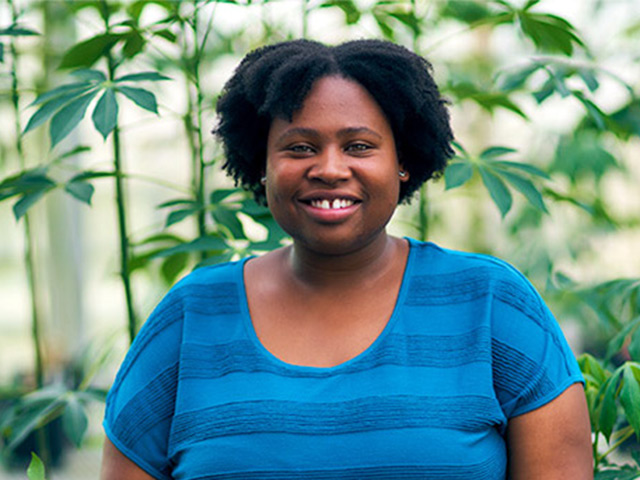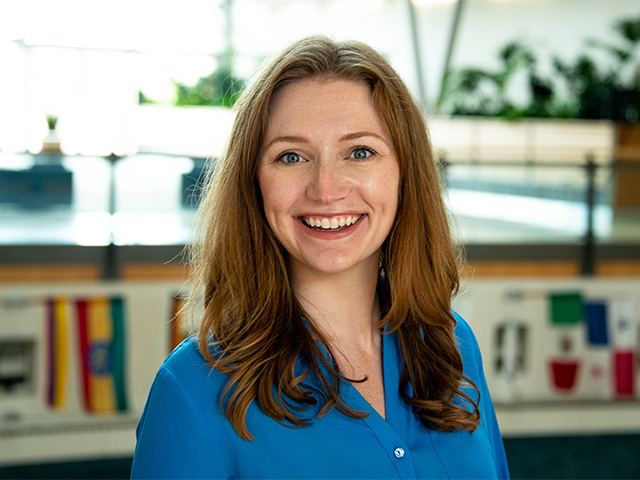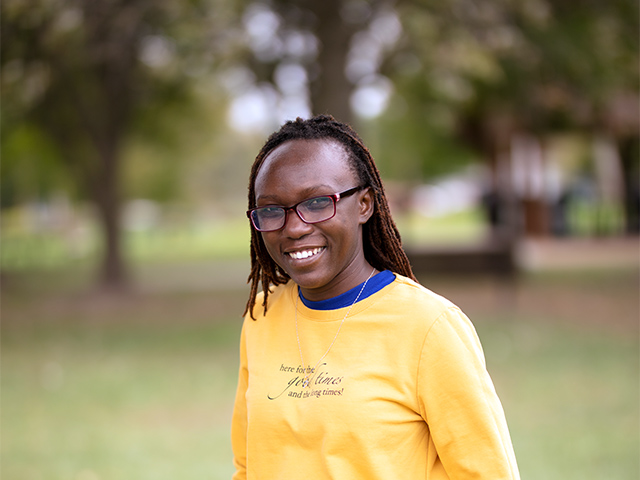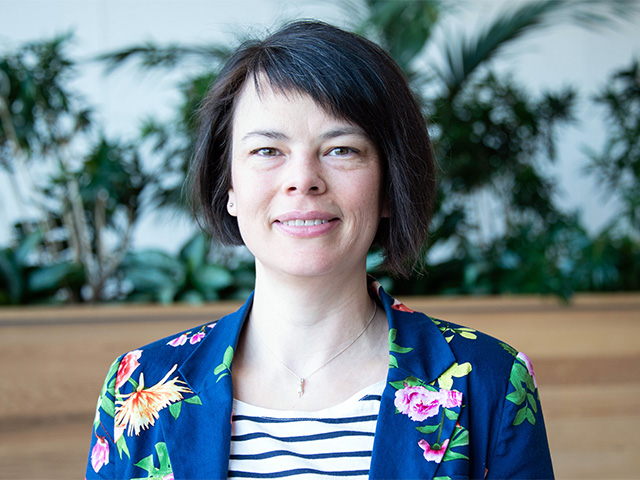Celebrating Women in Science at the Danforth Center
March is Women’s History Month, and we’re celebrating the many inspiring women who are working to improve the human condition here at the Danforth Plant Science Center. Supporting women in science continues to be of great importance; only 28% of the STEM workforce is comprised of women, and that percentage is even lower in math, computer, and engineering fields. As we reflect on the significance of this statistic, we asked a few of our scientists to share what the most important influences were in catalyzing their careers.
Kiona Elliott

While a high school student in Florida, one of her teachers received a grant to engage students in microbial research. Kiona was actively recruited to participate. “She wanted to give me an opportunity,” Kiona said. She connected with science as something real through that experience.
Katie Murphy

As a young girl, Katie was always encouraged by her parents to read. “My mom gave me a chemistry book when I was about 10,” Katie said while recalling what got her hooked on science. Then as an undergraduate student, Professor Ginny Walbot reached out and said, “Come into my lab and I’ll teach you everything you need to know about plants.”
Ketra Oketcho

Though her early expectations were to become a physician, a chance encounter and conversation with a plant science professor opened her eyes to the world of biotechnology. He actively followed up by sending Ketra more information about plant science and continues to serve as a mentor in her career journey.
Kerri Gilbert

As a second-year university student taking Introductory Genetics, Kerri encountered a young, new professor. “It was the first time I’d had a science class taught by a woman, let alone someone who didn’t look that much older than me,” said Kerri. As a role model, this instructor fueled a love for genetics that has propelled Kerri’s career ever since.
All these answers had something in common: each of these women had at least one role model or an individual who cared to actively engage them in science. There are proven ways that work to increase participation and retention in the STEM workforce. Offering inclusive experiences in science early and serving as engaged role models or mentors are known to be effective. Evidence that these strategies work is all around us at the Danforth Center. Many thanks to Kiona, Katie, Ketra and Kerri for sharing their experiences. We hope they inspire you to help others!